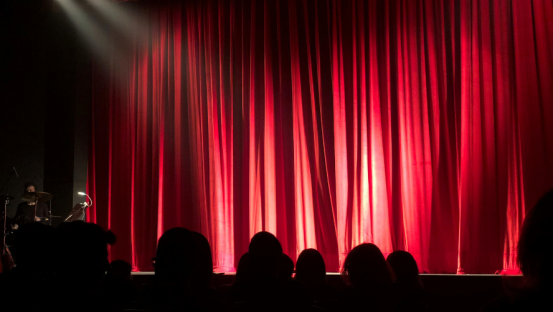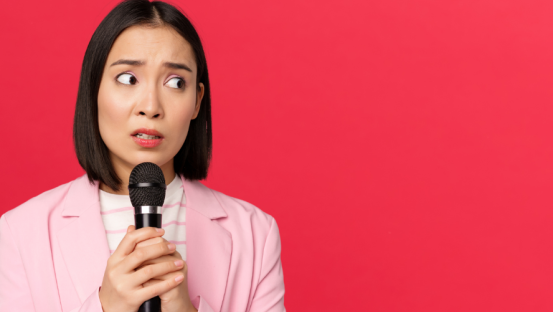It ain't over ‘till it's over: How to expertly end a panel discussion

Imagine you’re hosting an amazing panel discussion: ideas have been firing, each panelist has had riveting things to say, and the audience got involved with great questions and comments. Then you look at your watch and realize it’s time to wind down and end the session.
While it might be tempting to keep a good thing going, expertly ending the discussion on time and transitioning into the next session will leave everyone with a positive impression: eager to attend the next panel discussion you host.

Even with the most interesting topics and panelist, the audience can only sit so long. If you push past your scheduled end-time, the audience will start getting restless, and you might even risk bungling up the schedule for the rest of the day.
When a session runs too long your listeners will start mentally checking out, and in the worst case scenario, they will actually gather their things and exit the room.
Avoid letting a session end like this, leave the impression it was interesting from beginning to end. Stick to your time frames, and end the session cleanly and succinctly.
Here are three things you can do to expertly end a panel discussion:
1. Provide a place to continue the discussion afterwards
Discussions don’t need to stop just because the panel is over: in fact, it is better if they are so interesting that people want to keep talking about the ideas long after they’ve left the room.
You have two main options here: you can either physically move the conversation into a different room, where vested audience members can continue talking with the panelist, or you can move the whole conversation online.
- Create a place for audience members to connect with panelists
Make sure the majority of your panelists and the moderator are willing to stick around after the discussion, so they can informally meet, greet and share ideas with the audience members. When ending the session, let the audience know that the panelist will be available for them to speak to and where. - Move the conversation online
A best practice is to set up a place to continue the conversation online before the discussion starts. Decide if the best online venue for your audience is Twitter, a wiki, a forum or even a Facebook group, where the audience members and panelists can continue the conversation and share relevant links. Assigning hashtags during the session it extremely helpful in keeping the conversation buzzing during and after the session. This also makes a great resource for the event organizer or bloggers who may want to share the ideas, review the best points, and link to anyone who took pictures of the discussion.

2. Give each panelist a chance to close
While it might be tempting to ask ask each panelists for “one final thought,” or a “closing remark” typically they will rarely share new or helpful information for the audience. They will generally recap what they’ve already said.
Instead, have them use this time to either highlight what they felt the key element of the session was, or whether they felt a shift in their own perspectives. Challenge them by asking what they thought the most interesting part or point of the discussion was. Make sure the panelists know beforehand that this is how you plan on ending the session, don’t forget to let them know how much time they will have to give their closing.
During each of these closing segments, you’ve got a great opportunity to encourage panelists to talk briefly about where they can be found online, where others can learn more about them, or what resources support their perspective. Once again, make sure that the panelists are aware of how much time they have to speak.

3. Express gratitude
The final part to expertly ending a panel discussion is to acknowledge all members of the discussion. Express gratitude for their participation in the discussion.
Be sure to start off your thank-yous with each individual panelist. If they shared any perspectives you found particularly enlightening or challenging, briefly touch on them before thanking them for taking the time to participate in your panel discussion.
This being said, keep it tight timewise: briefly touching on the idea is a lot different than fully summarizing each of the panelists’ points.
Don’t forget that it took a lot of different people to pull your successful panel together. Consider concisely thanking the following people:
- the audience members.
- the hosts and organizers of the event,
- sponsors of the event,
- interpreters (if there were any)
- owners of the facility (if this is different from the hosts)
Some organizers like to go to the next level by offering the panelist and moderators a small gift or token at the end of the session. This however, is not expected.
Sometimes a well thought-out email or note after the event is a nice touch, especially if you got positive feedback from your audience about the panel. This can help build healthy relationships with your panelists, leaving them looking forward to working with you again.
Ending a discussion gracefully can be a bit of an art, it does get easier with practice, however. You can choose to give the audience some cues as where to go next, but generally once you have said thank you to the right people, your panel discussion will have been neatly closed.

We would love to hear your ideas, either as a panelist, audience member or organizer on how to successfully finish a panel discussion: what have you found works (or what doesn’t.)
You can find us on Twitter, or contact us here.







